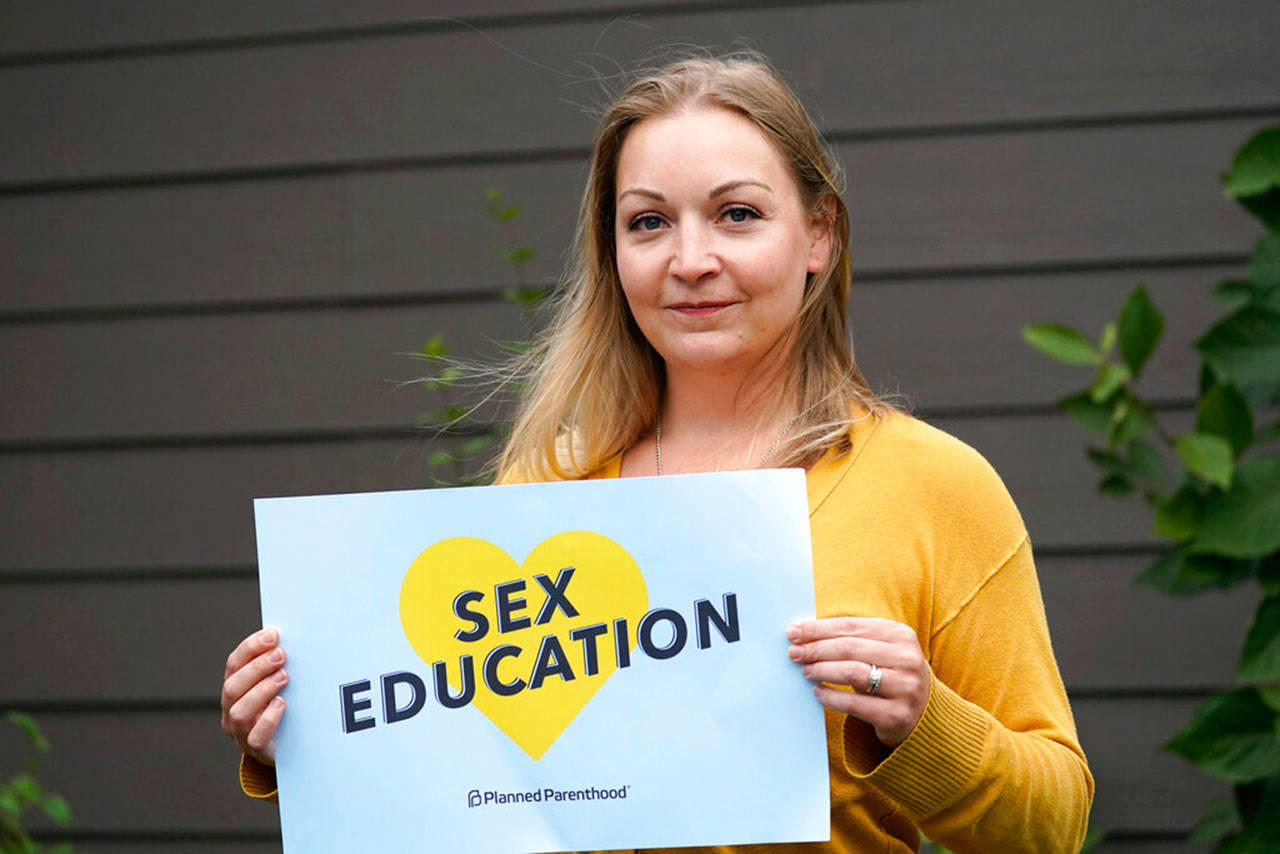By The Herald Editorial Board
Simply put: Approval of Referendum 90 — regarding a state law passed this year that assures the availability of comprehensive sexual health education in all state school districts — also preserves the right of parents to determine what their children are taught in school on subjects important to their physical health and emotional well-being.
Rejecting the referendum could restrict the ability — and the right — for some parents to make that decision for themselves.
Referendum 90 addresses legislation passed this year by state lawmakers that requires all school districts in the state to provide comprehensive sexual health education that includes information on abstinence and other methods of preventing pregnancies and sexually transmitted diseases; is scientifically accurate; is age-appropriate at all grade levels, K-12; encourages healthy relationships free of violence, intimidation and coercion; and helps youths to recognize and respond to sexually violent behavior.
While it was opponents of the legislation who put the referendum on the ballot, voters should note that approval of the referendum affirms the law as adopted by the Legislature and signed by the governor; rejection of the measure would repeal the law.
Voters should uphold the law with Referendum 90’s approval.
Many of the state’s school districts already offer similar curricula, but it’s been at each school district’s option; what the state law would do is require all school districts to adopt curricula from a list approved by the state Office of the Superintendent of Public Instruction or develop their own that meets standards set by OSPI.
Susan Sellers, an elementary health and physical education teacher with the Edmonds School District who participated in a work group that helped draft standards for the legislation, in a recent interview with the editorial board, noted the disparity among districts in what is offered.
“It was amazing to me that there are school districts out there that were teaching nothing,” she said. “The biggest push we had on this was that we need to make sure that every child has the opportunity, that districts can’t just opt their whole district out.”
At the same time, Sellers said, the law allows parents of children at all grade levels the ability to review materials and opt their child out of the curriculum if desired.
As the editorial board has said before, students need better information than many are getting to protect their health, safety and futures, and public schools provide the second-best resource — after parents — for reliable and approachable information. But that information is not offered broadly enough to benefit all students in the state.
While teen pregnancy rates in the state have dropped in recent years, the same is not true for the rates of sexually transmitted diseases among teens. According to the state Department of Health, for the five year period, 2014-18, cases for males and females ages 15 to 19 increased significantly for chlamydia, gonorrhea and syphilis. Over the same period, teens also have reported an increase in unwanted sexual contact and dating violence.
The state’s most recent Healthy Youth Survey asked 12th graders whether they received prevention education regarding sexually transmitted diseases and pregnancy; only 39 percent said they had been taught prevention through abstinence and only 43 percent said they had been given information on other prevention methods.
Requirements for curriculum would increase access to that information and would instruct students on healthy relationships based on mutual respect and affection, free from violence or coercion; on identifying behaviors that can lead to sexual violence; and provide guidance on affirmative consent.
For younger children, the instruction may help them recognize and reach out when they have been abused, said Courtney Normand, a Snohomish County mother of two, who is state director for Planned Parenthood Votes for Hawaii and Washington.
In talking with staff at the King County Sexual Assault Center, Normand said counselors noted a larger number of sexual abuse survivors among fifth- and sixth-grade students. It wasn’t that the abuse was necessarily starting at that age, Normand said, “but that’s when they first had sex ed.”
The abuse, she said, often happened years before. “Until that point, they never had the language or the wherewithal (to know) that this was not OK and they needed to talk to someone,” she said.
Opponents of the law have ignored its provision allowing parents to opt out, have labeled it as “sex ed for kindergartners,” claimed it seeks to sexualize children and have floated accusations that some classroom materials show graphic sexual content. None is accurate.
During an interview with the editorial board this fall, state schools Superintendent Chris Reykdal refuted opponents’ claims, arguing that the graphic content, while listed among additional material for district consideration, is not intended or recommended for classroom instruction, but is instead a “third-party text” meant as an alternative resource for parents.
The intent of the law is not to promote sexual activity among youths or instruct them on how to have sex; instead it focuses on health, safety and respect for others.
“This is about making sure younger children know what kind of touching is inappropriate, whether by peers or predators,” the legislation’s primary sponsor, Sen. Claire Wilson, D-Auburn, said earlier this year. “It’s about helping older students recognize and resist abusive or coercive behavior. It’s about teaching all children to respect diversity and not to bully others.”
Voting to approve Referendum 90 will assure that all students throughout the state will have access to instruction that can help them make informed decisions about their health and well-being, while preserving each parent’s right to know what is being presented and the ability to decide what’s best for their child.
Talk to us
> Give us your news tips.
> Send us a letter to the editor.
> More Herald contact information.

























